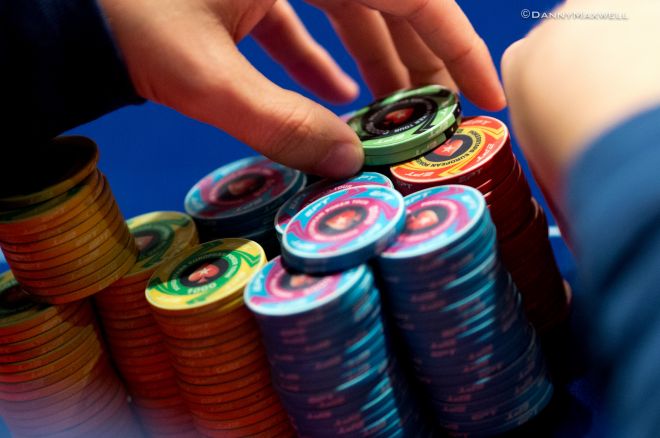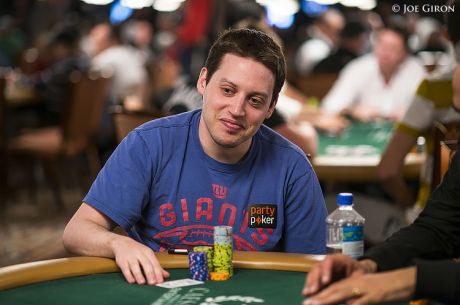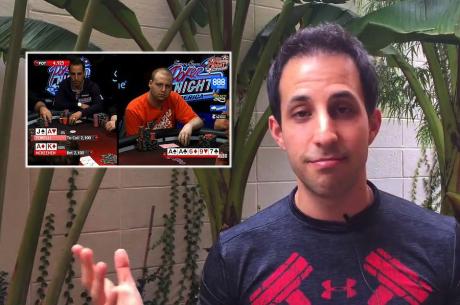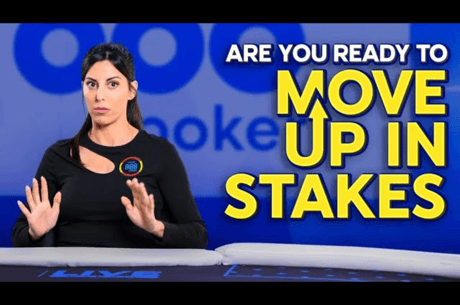Should You Bluff the Recreational Players? Yes and No

One of the oldest rules in the book about small stakes poker is never to bluff the fish. (��Recreational players�� is the more polite term that we use for them these days.) Never is a strong word, though.
Should you regularly run big bluffs against these types of players? If you like money then I would highly advise against it. However, if you were never to bluff the fish at all, then you would be missing out on a lot of potentially profitable situations.
We all know that among this group of players a favorite thing in the world to do is to call. However, often their actions throughout the hand give away clear signs as to the strength of their hand. Once you learn how to read these actions, then it becomes easy to pick up pots when it is obvious that they don��t have anything with which to call you.
The Flop Donk Bet
One trait that distinguishes recreational players is the way they love to limp into the pot with a wide range of hands. This is why I suggest frequently raising them (isolating them), especially in position with an equally wide range of hands.
We do this because we know that most of the time they won��t connect with the flop in any meaningful way. They will check to us and we can simply take it down with a continuation bet. This is a standard play and this is not what I mean by bluffing.
However, not every recreational player will give up this easily. Many of them are fond of making what is called a ��donk bet�� by leading into you before you get a chance to make your c-bet. This bet will often be some trivial amount which gives you mathematical odds to call with literally any two cards. I am talking about a bet size of anywhere from the minimum to about 25% of the pot.
What do you do in these situations? Some people get annoyed by this. I just see free money.
Most of the time when bad players make this kind of bet they have very little. They often have a weak pair hand or some sort of long-shot draw at the most. You can often take down the pot right then and there with a simple raise.
This is why I suggest raising donk bets with a wide range. You should raise them any time you have connected with the flop in any way. For instance, any time you hit a pair or any kind of draw, you should raise. I would recommend you frequently raise these bets with plenty of air hands as well containing two overcards, such as ace-high and king-high.
You don��t even have to think of it as bluffing. In fact if they make the minimum bet size (the big blind) as you will sometimes see happen online, I would suggest just ignoring this completely. It is a totally meaningless bet. Pretend it doesn��t even exist and just make your standard c-bet.
Bluffing the Recreational Players on the Turn and River
You will, of course, get called sometimes as well. What should you do then?
Well, it is important to remember that most of the time they are just hanging on with a weak pair or a weak draw. This is to be expected. After all, calling stations like to call. This doesn��t mean that we can��t still win the pot.
If the obvious draws miss on the turn and/or a scare card falls, you could try taking another stab at it when they check to you. If they donk into you again, then it is likely that they have some pair hand that they are getting sticky with and I would advise against trying to bluff them again. You should just call the bet if you have any equity at all.
If it goes check/check on the turn and all of the obvious draws have missed on the river, they will often try to donk into you again as a bluff. This is an excellent opportunity to try and take the pot away from them again. I would recommend raising this bet if you have no showdown value at all (a no-pair hand).
Often it will be the case that they have a no-pair hand themselves with a missed draw. Even if they are taking a stab at it with a weak pair, often your raise will be enough to make them lay it down. This is a huge victory for us to pick up these pots with nothing at all.
Don��t Tap the Well Too Many Times
The most important thing to remember with all of this talk of bluffing the fish, though, is that you can��t get away with it too many times. I would highly recommend you only try a double-bluff raise play like this in the very beginning when you have no history with your opponent.
If you keep trying to bluff them again and again, they will very quickly start calling you down with hands like bottom pair, ace-high, or even king-high. It is very important when playing against recreational players to know exactly what the dynamic between the two of you is.
By this I mean that you should be acutely aware of your recent history with the player. Recreational players absolutely love to play sheriff and they will often peg you as a maniac for life if they think that you bluffed them even once.
It is therefore important to adjust and make sure that you have it next time. And by ��have it�� I don��t necessarily mean that you need the nuts by any means. This is the mistake that a lot of people make. Now is the time to go for super-thin value instead.
If you have built up those seeds of doubt in their mind by bluffing them out of a pot or two, then go for some super sick value with middle pair or even bottom pair next time. You can do this by either calling their bet on the river or betting when they check to you. Just make sure that you refrain from trying to bluff them again if you have complete air. They are going to call you down no matter what.
Final Thoughts
The old adage that states you should never bluff the recreational players still largely holds true. After all, these players don��t really ever change. They play poker for fun and they don��t really ever think about the game on any kind of deeper level.
It is also important to remember that they live for the big call. This is what often gets glorified in Hollywood depictions of the game and in big poker tournaments shown on TV. There is no bigger satisfaction in the game for them than catching somebody in a big bluff.
However, this doesn��t mean that we can��t get away with a few well-timed smaller bluffs, especially early on when we are likely to get the highest level of credit from them. You should raise up their donk bets frequently, for instance, as they often indicate a weak hand. And you can take another shot at it on the turn or the river as well, depending on the action in the hand and the board.
But it is important not to get overzealous in these situations. You can only tap the well so many times. After you get away with a bluff or two against them, you should expect to get almost zero respect in future hands.
You should most certainly keep isolating them frequently preflop and then making your c-bet on the flop. However, make sure that you have some sort of reasonable made hand or decent draw when getting involved in any significant way on the later streets.
Nathan ��BlackRain79�� Williams is the author of the popular micro stakes strategy books, Crushing the Microstakes and Modern Small Stakes. He also blogs regularly about all things related to the micros over at www.blackrain79.com.
Get all the latest PokerNews updates on your social media outlets. Follow us on Twitter and find us on both Facebook and Google+!









